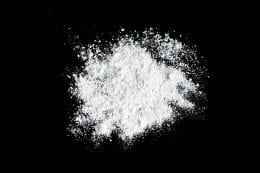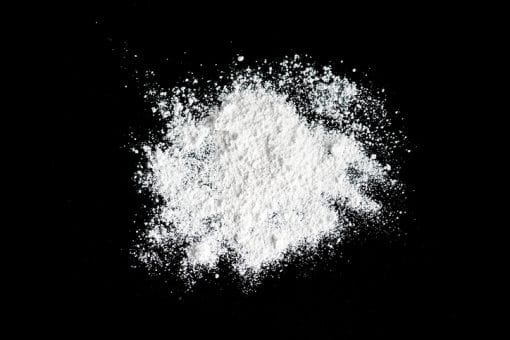 Cocaine and Anxiety
Cocaine and Anxiety
Anxiety commonly occurs in the teenage population due to the many changing factors associated with this life stage. Hormonal changes, physical changes to the body, the stressors associated with academic performance, peer pressure, and trying to balance family obligations with maintaining a social life are all common events that teenagers are faced with on a daily basis. Twenty-five percent of 13- to 18-year-olds are known to have mild to moderate anxiety. The lifetime prevalence of severe anxiety disorder is 5.9 percent and girls are more likely than boys to be diagnosed with an anxiety disorder. Anxiety is among the earliest of developing pathologies in young adults and in teenagers, anxiety often overlaps with depression. Teenagers who have anxiety may turn to drugs and/or alcohol as a way to self-medicate and ease their symptoms. Alternatively certain drugs such as cocaine can heighten symptoms of pre-existing anxiety, making it worse.
Cocaine use among teenagers
Cocaine is an attractive recreational used substance that is commonly snorted intranasally to enhance mood, energy and produce euphoria, otherwise known as a stimulant. Cocaine can be cut or mixed with impure ingredients making it less expensive and even more dangerous. Crack cocaine is the solid crystal form of cocaine and can be smoked or heated down to liquid to be injected. Crack is the most potent form of cocaine and therefore the most dangerous. About six percent of high school students reported abusing crack or cocaine at some point in their lives. In addition, 3.4 percent said that they used the drugs within the last year and 1.3 percent reported cocaine use in the past month. Although cocaine is not considered to be the most popular used or abused drugs among teenagers, cocaine is known to be one of the top five drugs involved in drug-related deaths in most areas in the United States and cocaine is the second most common drug-related emergency room visit after alcohol.
Signs and symptoms of cocaine toxicity
Acute cocaine toxicity can range from dilated pupils and a racing heart to generalized seizures and cardiac arrest. Depending on the purity and the dosage, death can within two to three minutes to 30 minutes. The following are signs and symptoms of acute cocaine toxicity:
- Dilated pupils
- Profuse sweating
- Elevated heart rate
- Elevated blood pressure
- Vertigo
- Muscle twitching
- Pseudo hallucinations (cocaine bugs)
- Euphoria
- Restlessness
- Bruxism (grinding of the teeth)
- Emotionally labile
- Impending sense of doom
- Generalized seizures
- Cardiac arrhythmias
- Severe hyperthermia
Types of anxiety disorders
There are many types of anxiety disorders that can occur in teenagers. When an anxiety disorder is present along with a substance abuse disorder such as cocaine abuse, this is known as a co-occurring disorder, formerly called dual diagnosis. Withdrawing from cocaine can worsen anxiety resulting in continued cocaine use, which also heightens anxiety symptoms, making this a viscous and difficult circle to beat. The following are types of anxiety disorders that occur in teenagers:
- Obsessive-compulsive disorder (OCD): Obsessive-compulsive disorder (OCD) is characterized by intrusive unwanted thoughts known as obsessions that are relieved through repetitive acts known as compulsions.
- Panic disorder: Characterized by feelings of extreme worry that mimics a life-threatening situation.
- Social anxiety disorder: Social anxiety disorder is characterized by excessive and lasting fear of social performance situations and activities.
- Specific phobia: A specific phobia is the intense, irrational fear of a specific object, such as a dog, or a situation, such as flying.
- Posttraumatic stress disorder (PTSD): Teens with posttraumatic stress disorder, or PTSD, may have intense fear and anxiety; become emotionally numb or easily irritable; or avoid places, people, or activities after experiencing or witnessing a traumatic or life-threatening events
- General anxiety disorder (GAD): Characterized by excessive worry and fear about a variety of things. Signs and symptoms must be present for at least six months and this disorder must impact the overall functioning of the teenager’s daily activities.
Seeking treatment
Initiating a supportive open dialogue with your teenager is important in order to allow them to trust you and be honest with their situation. Always express your concern and not your anger and explain why you are concerned with their recent behavior. If you highly suspect cocaine abuse then it is wise to seek out professional help from a therapist and from an addiction treatment specialist that specializes in adolescence substance abuse and mental health disorders. Although there is no specific treatment for cocaine addiction, cognitive behavioral therapy and family therapy has shown to help teenagers who battle with substance abuse and mental health disorders. Cocaine intoxication can result in heart attacks and immediate death and therefore it is important to help your teenager seek the proper treatment immediately
Seek Help
If you are struggling or someone you know is struggling, we are here for you. Center for Discovery’s Treatment Centers specialize in treatment for eating disorders, mental health and dual diagnosis treatment with unique treatment programs for every individual to get them on their way to eating disorder recovery.
For more information, resources, or to consult with one of our specialists, call 877.626.3524.
